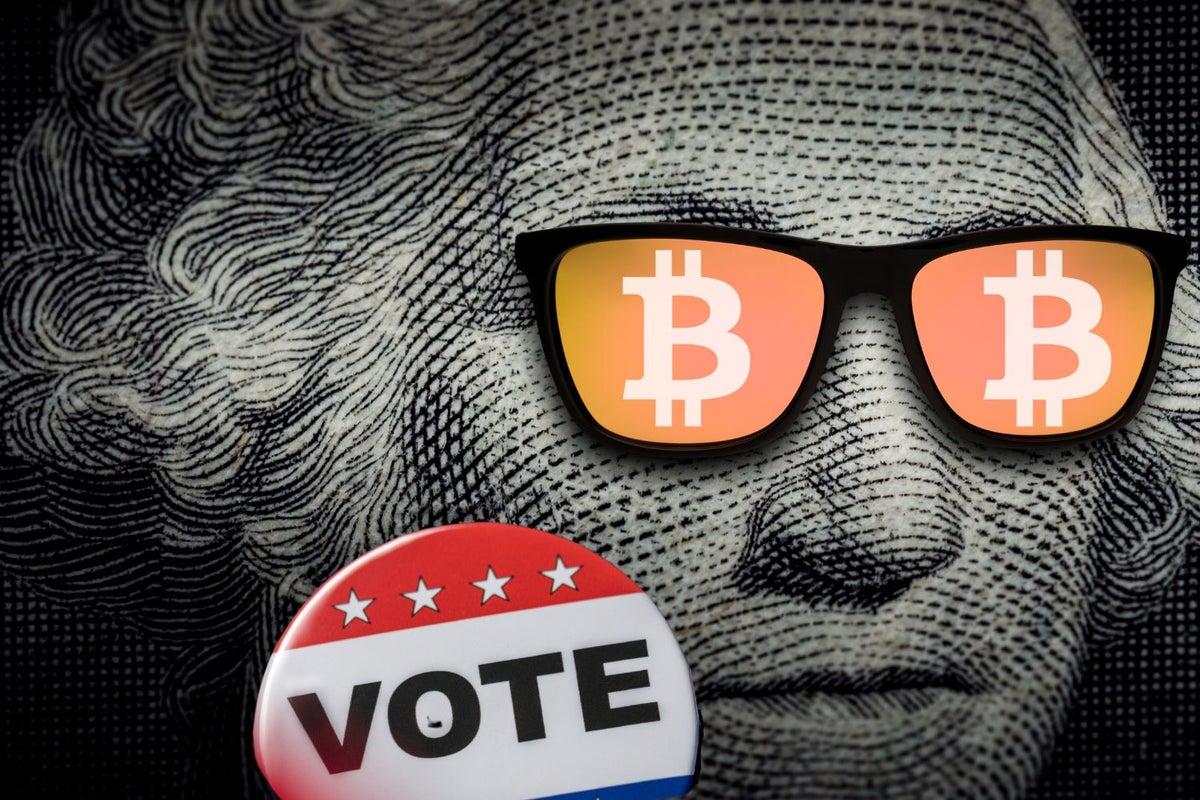American households face a challenging economic environment, primarily driven by persistent inflation. Credit card debt is high, and personal savings rates are low. The Federal Reserve – and money itself – have become critical issues in the current Presidential race.
The usual questions about government spending and entitlements are part of this conversation. However, this time, two additional variables are in the mix. First is Bitcoin, a viable free-market alternative to central banking and government money. Second is the concept of a Central Bank Digital Currency (CBDC), which the Fed is exploring, presumably to keep up with other central banks doing the same.
In retail form, a CBDC grants the government immense control over money and banking, which would fundamentally transform consumer privacy and the commercial banking system itself.
This election cycle, Bitcoin and CBDCs have broken onto the main stage of national politics. Candidates from both parties, from heavyweights to hopefuls, share their stances on each in statements, speeches, and platforms.
For candidates with anti-authoritarian platforms, backing Bitcoin and opposing CBDCs go hand in hand. These candidates, such as Democrat Robert F. Kennedy Jr. and Republicans Ron DeSantis and Vivek Ramaswamy, discuss Bitcoin’s benefits for personal and financial freedom.
Kennedy Jr. is the most outspoken Bitcoin advocate of this group. After announcing his candidacy in Boston, Kennedy held his first campaign event in Miami as a keynote speaker at the Bitcoin 2023 conference.
Speaking directly to the crowd of Bitcoin entrepreneurs, developers, and enthusiasts, Kennedy stated, “As president, I will make sure that your right to hold and use bitcoin is inviolable.” Adding, “I am an ardent defender and lifelong defender of civil liberties and Bitcoin is both an exercise and a guarantee of those freedoms.”
Ramaswamy and DeSantis have not minced words either. Ramaswamy also spoke at Bitcoin 2023, announcing his campaign would accept Bitcoin donations and tweeting, “Let’s make the 2024 election a referendum on fiat currency.”
DeSantis expressed pro-Bitcoin views during the Twitter event where he announced his candidacy. About would-be regulators, he stated, “they’re central planners and they want to have control over society and so Bitcoin represents a threat to them,” while clarifying that he would not attempt to regulate Bitcoin or the industry that has grown around it.
All three candidates have denounced CBDCs. DeSantis even proposed and signed a statewide CBDC ban in Florida once it passed the legislature.
Former President Donald Trump and current President Joe Biden stand apart from Kennedy Jr., Desantis, and Ramaswamy. Though Trump has not pushed for CBDCs like Biden, he previously stated that cryptocurrencies threaten the dollar system.
To garner votes, candidates respond to issues that they think will resonate, and they know CBDCs are unpopular. Opposing CBDCs also serve as a proxy for criticizing the Fed, which is politically advantageous given Fed Chair Jerome Powell’s 36% approval rating, the lowest rating of any Federal Reserve Chair on record.
Candidates describing Bitcoin as a potential solution to CBDCs and the Fed’s failings demonstrate a narrative shift regarding its relevance and perceived staying power. No longer viewed as one of many speculative “crypto tokens,” Bitcoin is legal tender in a sovereign nation, El Salvador, and its underlying network is capable of fully replacing central banking worldwide.
With CBDCs on the horizon and monetary and fiscal policy becoming increasingly bleak, candidates are converging on Bitcoin as a way to embed the American values of freedom, privacy, and decentralized power into their platforms.
Bitcoin is a global phenomenon that will continue to proliferate regardless of whether any government or politician explicitly supports it. And yet, an American election where Bitcoin is viewed as a legitimate talking point is a remarkable milestone in the history of Bitcoin.
Given the regulatory hostility Bitcoin companies have faced over the past few years, outspoken pro-Bitcoin candidates could change the regulatory landscape for the better, benefitting American citizens of all political stripes.
2024 will go down in history as the first time America considered pro-Bitcoin candidates. Whether it is also the year the United States elects its first pro-Bitcoin President remains to be seen.
Image and article originally from www.benzinga.com. Read the original article here.

